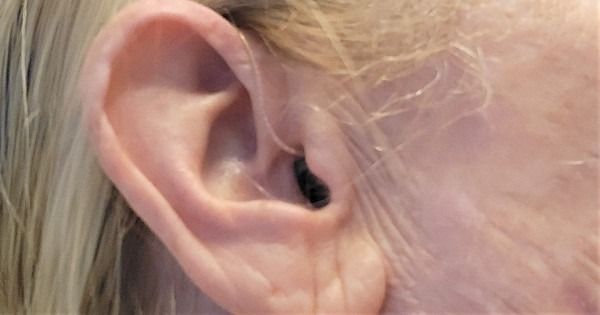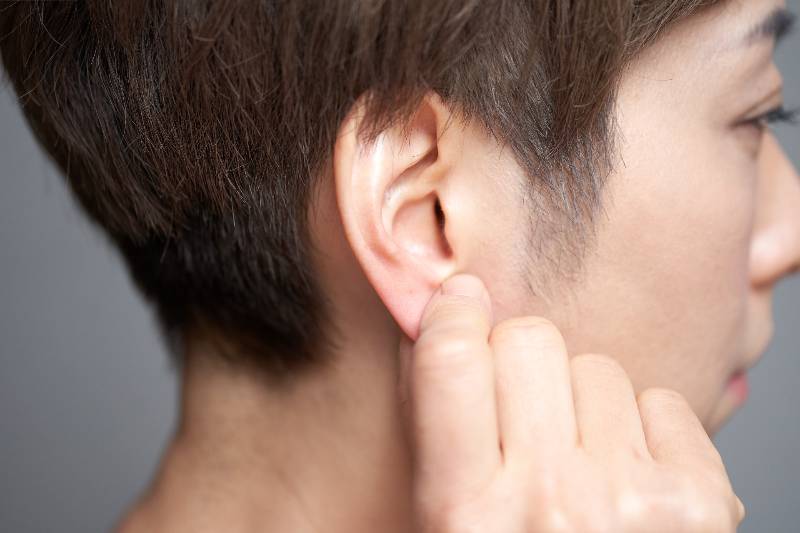Introduction
Meningitis is a serious inflammation of the meninges, the membranes that surround the brain and spinal cord. It can be caused by bacteria, viruses, or fungi. Bacterial meningitis is the most serious type, and it can be fatal if not treated promptly.
One of the most common complications of meningitis is hearing loss. Up to 35% of people who survive bacterial meningitis will develop some degree of hearing loss. The hearing loss can be mild or severe, and it can affect one ear or both ears.
There is no cure for meningitis-related hearing loss, but there are treatments that can help to improve hearing. These treatments include:
- Medications to reduce inflammation
- Cochlear implants
- Hearing aids
Tinnitus: why it’s still such a mystery to science
Tweak Digital Hearing Amplifier
Experience the epitome of sophisticated sound with Tweak, the revolutionary device that brings a new dimension to your auditory experience. Harnessing the power of innovative patented technology, Tweak offers you the freedom to fine-tune your hearing with a diverse range of amplification options. Whether you prefer a subtle enhancement or a more pronounced boost, Tweak empowers you to effortlessly customize your acoustic world.
Crafted with meticulous care and expertise, Tweak represents the brilliant collaboration between an esteemed audiologist and a team of dedicated acoustic engineers. Their collective passion for impeccable sound quality shines through in every detail of this remarkable device. Designed to elevate your hearing capabilities across any environment, Tweak utilizes cutting-edge technology to ensure that you can fully engage with the sounds that matter most to you.
Unlock the extraordinary potential of affordable sound quality with Tweak. By leveraging the latest advancements in digital technology, this ingenious device delivers an auditory experience that rivals that of prescription hearing aids. With premium-grade components at its core, Tweak offers you uncompromising performance without breaking the bank. Immerse yourself in a world of enhanced sound, where clarity and richness seamlessly merge to create an exceptional listening experience.
Medications and Therapies to Mitigate Hearing Loss in Meningitis Patients
Medications can be used to reduce inflammation in the inner ear, which can help to improve hearing. These medications include steroids and antibiotics.
There are also a number of therapies that can be used to improve hearing in people with meningitis-related hearing loss. These therapies include:
- Speech therapy
- Auditory rehabilitation
- Cochlear implant surgery
Medications can be used to reduce inflammation in the inner ear, which can help to improve hearing. These medications include steroids and antibiotics.
- Steroids can help to reduce inflammation by suppressing the immune system. This can help to protect the inner ear from further damage. [1]
- Antibiotics can help to kill the bacteria that are causing the meningitis. This can help to prevent further damage to the inner ear. [2]
In addition to medications, there are also a number of therapies that can be used to improve hearing in people with meningitis-related hearing loss. These therapies include:
- Speech therapy can help people with meningitis-related hearing loss to learn how to communicate more effectively. This can include lip reading, sign language, and other communication techniques. [3]
- Auditory rehabilitation can help people with meningitis-related hearing loss to learn how to use hearing aids or cochlear implants. This can include training on how to adjust the devices, how to use them in different environments, and how to cope with the challenges of hearing loss. [4]
A cochlear implant is a device that can be surgically implanted in the inner ear to restore hearing. Cochlear implants are a promising solution for people with meningitis-induced deafness. They can help people to regain their hearing and communicate more effectively.
Hearing Aids and Assistive Devices for Meningitis Survivors
Hearing aids can also be helpful for people with meningitis-related hearing loss. Hearing aids amplify sound, which can help people to hear better.
There are also a number of other assistive devices that can help people with meningitis-related hearing loss. These devices include:
- FM systems
- Captioning devices
- Visual alarm systems
Cochlear Implants: A Promising Solution for Meningitis-Induced Deafness
A cochlear implant is a device that can be surgically implanted in the inner ear to restore hearing. Cochlear implants are a promising solution for people with meningitis-induced deafness. They can help people to regain their hearing and communicate more effectively.
A cochlear implant consists of two parts: an external part that sits behind the ear and a surgically implanted internal part. The external part contains a microphone that picks up sound and converts it into electrical signals. These signals are then sent to the internal part, which stimulates the auditory nerve. This allows the brain to interpret the signals as sound.
Cochlear implants can be very effective in restoring hearing for people with meningitis-induced deafness. In some cases, people with cochlear implants can achieve near-normal hearing. However, it is important to note that cochlear implants are not a cure for hearing loss. They can help people to hear better, but they cannot restore normal hearing.
- References:
- “Meningitis: Treatment.” Mayo Clinic, Mayo Foundation for Medical Education and Research, 14 Feb. 2023, www.mayoclinic.org/diseases-conditions/meningitis/diagnosis-treatment/drc-20354691.
- “Meningitis.” Centers for Disease Control and Prevention, 2023, www.cdc.gov/meningitis/bacterial/index.html.
- “Speech Therapy for Hearing Loss.” American Speech-Language-Hearing Association, www.asha.org/public/hearing/disorders/speech-therapy/.
- “Auditory Rehabilitation.” American Speech-Language-Hearing Association, www.asha.org/public/hearing/disorders/auditory-rehabilitation/.
Deafness: A Journey of Challenges and Triumphs
Conclusion
Meningitis-related hearing loss is a serious condition, but there are treatments that can help to improve hearing. If you or someone you know has meningitis, it is important to see a doctor right away to get treatment. Early treatment can help to prevent hearing loss or minimize its severity.

Pioneering Pathways in Sensorineural Hearing Loss Research
An exploration of sensorineural hearing loss, focusing on causes, innovative research, and potential treatments. Understanding this can guide effective prevention strategies and improved quality of life.








